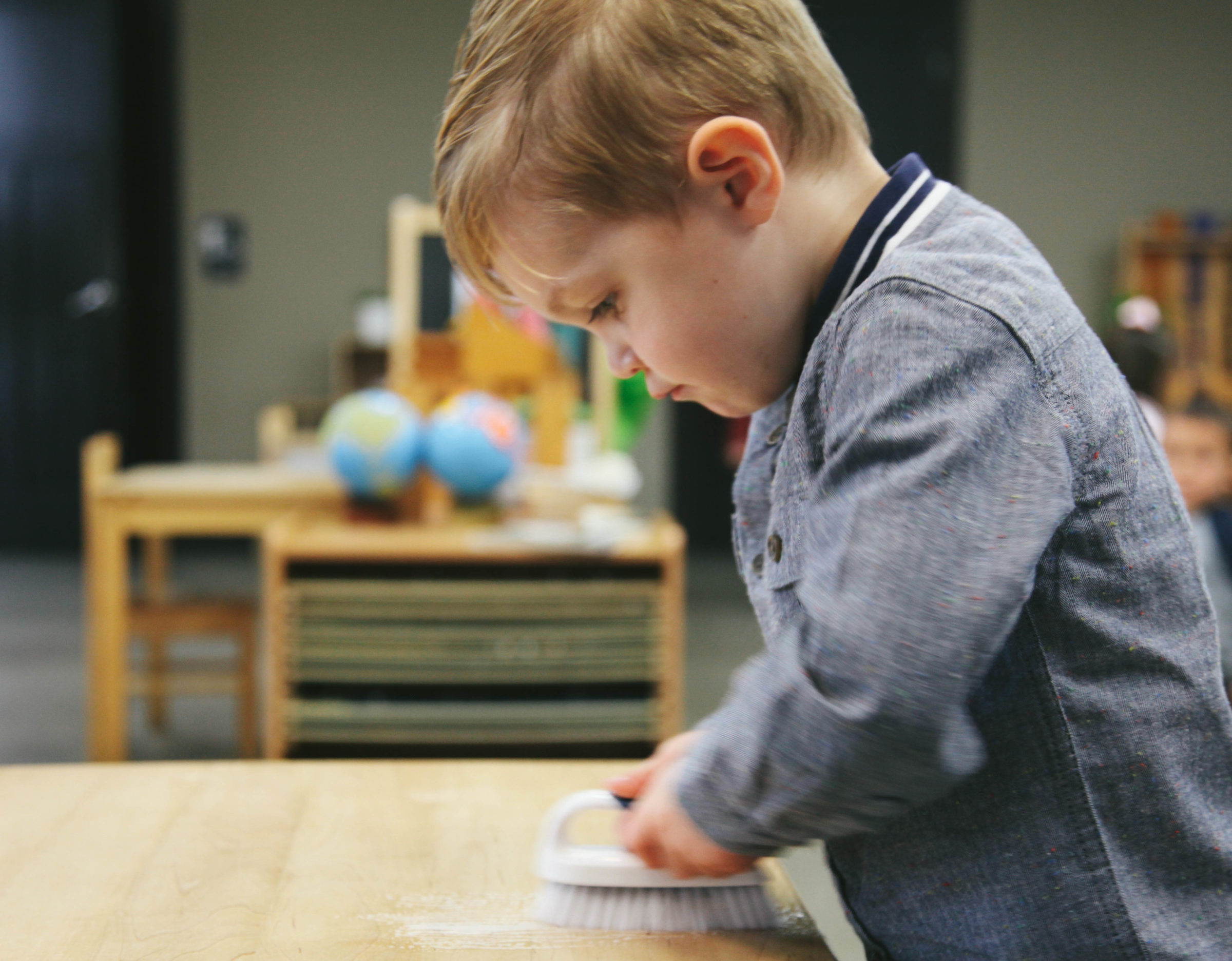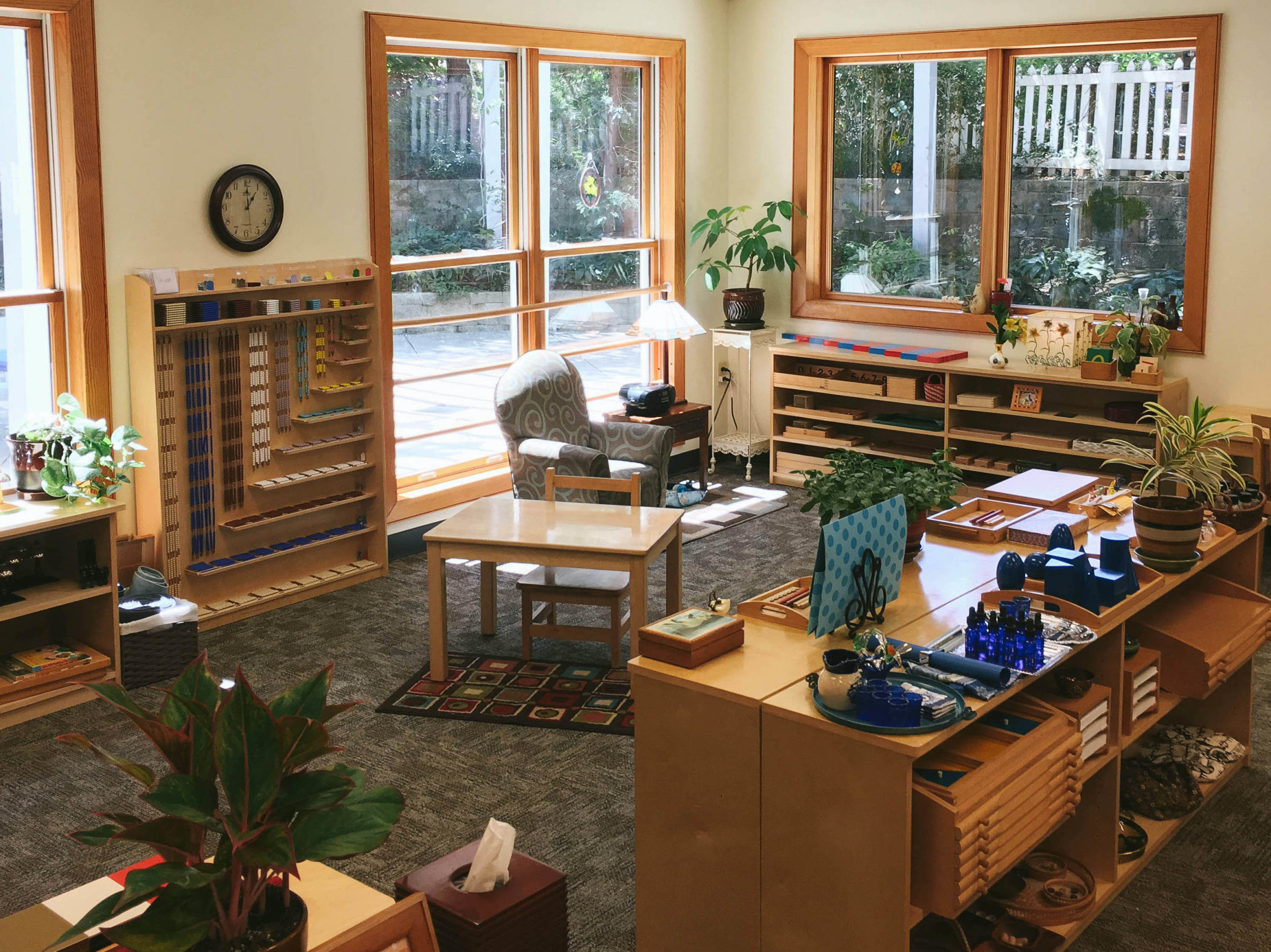Spotlight Mary Flewelling-Pinchen
Spotlights
Q: Can you tell us a little bit about yourself? Your background, your interests, your dreams?
When I was a little girl I knew I wanted to be a teacher. After excelling all through public and high school, I lost my way at University. I was still trying to memorize everything instead of formulating ideas of my own. Not knowing how to think for myself, I burned out and gave up. Without a university degree, my dream of teaching seemed out of reach. Luckily, a few years later, I stumbled across a Montessori school that needed a primary assistant. My life was transformed when I was hired for that position. For the past 39 years, I have been directing Montessori primary classrooms throughout southwestern Ontario. I even had the opportunity to establish a Montessori primary classroom in Chengdu China in 2014! Along the way, I married, had two children and now have a beautiful granddaughter. I love to sing, skate, write and travel, but my greatest passion has always been my work as a Montessori educator!
Q: Now that the hardest question is out of the way: What’s your favorite color?
My favourite colour is green – particularly the first green of Spring!
Q: Do you have a favorite book? How about a film?
My favourite adult book is Cry the Beloved Country by Alan Paton. I have many, many favourite children’s stories as well – too many to list here, but Charlotte’s Web, Anne of Green Gables, and Harry the Dirty Dog stand out! As for films, I am a Turner Classic Movie Fanatic. I am particularly fond on movies from the golden era (1930-1950’s). My favourites include The Women, The Letter, Now Voyager, Mrs. Miniver and How Green Was my Valley.

Q: When you close your eyes late at night, and imagine waking up and starting a new adventure: what is that adventure?
I think the most wonderful new adventure for me would be to wake up as a young, inexperienced Montessori teacher so I could take the same Montessori journey I have had all over again – possibly in another country and culture!
Q: What first appealed to you about Montessori?
I have always been impressed with the fact that Montessori children learn to think and act for themselves at a very early age. They become comfortable making their own independent choices and decisions – something I never got the hang of when I was growing up.
Q: What advice do you have for new Montessori adults?
When I speak to Montessori parents, I encourage them to examine what they really hope their children will take away from their years of schooling. When confronted with this question, parents often realize that academics are not the be all and end all – instead their primary desire is that their children will leave school as well-rounded, adaptable, compassionate, independent, confident and happy young adults, comfortable with diversity and ready to tackle the many challenges that exist in our modern world.
Q: Did you have a “Montessori Moment?”
My Montessori moment was probably like that of many others. When I first observed a primary classroom prior to interviewing for the position of teaching assistant, I had never heard of Dr. Montessori or her educational approach. It only took 20 minutes of watching a primary classroom for me to decide that I would do whatever was required in order to be a Montessori educator.
Q: What’s your favorite Montessori quote?
Favourite Montessori quote – that’s hard because there are so many good ones. Here is one that I like:
“The teacher of children up to six years of age knows that she has helped mankind in an essential part of its formation… She will be able to say: ‘I have served the spirits of those children, and they have fulfilled their development, and I kept them company in their experiences.”

Q: What inspired you to share your Montessori story in your book?
It was my early experiences as a Montessori educator that motivated me to write my book. I had the good fortune of working in an excellent authentic Montessori school as an untrained assistant for three years before I undertook my A.M.I. training in Toronto. After completing my training program, I worked with more experienced directresses for 2 more years before I took on the responsibilities of a head directress. By that time I was truly “at home” in the Montessori primary classroom. Many of my colleagues had not been as well prepared at the beginning of their Montessori careers. I found myself wondering what happens to young Montessori guides when they find themselves in a less than ideal Montessori situation. Although I recognize that nothing can take the place excellent training and the opportunity to work in a normalized setting for a sufficient period of time, I hope that my books provide some guidance to those in need of practical inspiration.
Q: What advice do you have for new parents trying to incorporate Montessori at home?
I believe that the best way for parents to support their children at home is two-fold. Firstly, they should familiarize themselves with what Dr. Montessori said about early childhood development and then make modifications to their home and daily life to support the child’s need for order, routine, sensorial exploration, independence, movement and connection with nature. Secondly, I would ask that parents to take the time to truly involve their children in the daily tasks of living. Providing the opportunity for children to participate fully in the life going on around them is act of great respect and love.
Q: What do you think is the best introduction to Montessori?
Undoubtedly, the best introduction to Montessori education has to be the opportunity to observe an authentic Montessori classroom in action. I can’t imagine not being “blown away” when watching a normalized Montessori primary classroom in action!
Q: Where do you see Montessori in the next 100 years?
It is exciting for me to realize that Montessori education (that has remained relatively unchanged for more than 100 years,) is still way ahead of most traditional forms of education. However, since modern science and brain research is now confirming what Montessori educators already know, it is only a matter of time before most educators appreciate the true value of Montessori education on human development. I don’t expect to see it in my lifetime, but I believe that in 100 years, most schools will look a lot like Montessori schools.
Written by:
Charlotte Snyder



